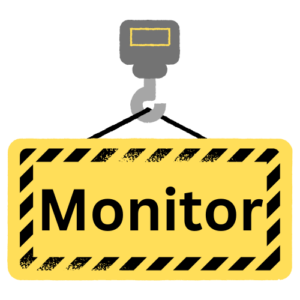Competitive Edge
April 23rd, 2025
Stay Current with InterlogUSA
Questions about Tariffs?
Feeling unsure about how tariffs might affect your goods? Whether you’re exploring exemption options or just need a clearer picture, we’re here to help. Send us an email at support@interlogusa.com
Market Update

Tariffs:
As we mentioned in past editions of Competitive Edge, President Trump temporarily paused his reciprocal tariffs for 90 days on most countries. Those countries (except China) will continue to have a baseline 10% reciprocal tariff, but not the additional increases that were originally implemented.
When it comes to the reciprocal tariffs on China, President Trump did raise the reciprocal tariff on China to 125%, due to them continuing to add reciprocal tariffs of their own. However, the U.S. Customs and Border Protection issued a notice that lists a variety of products that would be exempt from the reciprocal tariffs (largely electronics). The new exemptions are retroactively effective April 5th, and shippers may be eligible to request and receive a refund for duties paid on newly-exempted products, according to the U.S. CBP notice.
As of Tuesday, April 22nd, President Trump made remarks at a White House news conference and said tariffs on Chinese goods will “substantially” decrease, but not be zero – as reported by Freightwaves.
Other tariffs in effect include the 25% on steel/aluminum (as of March 12th). As well as the 25% on automobile/auto parts (as of April 2nd). There are some exemptions, including those compliant under the USMCA.
If you are curious about what exemptions look like or want additional information regarding tariffs, you can contact us at: support@interlogusa.com

March Global Port Volumes:
— As we recap the month of March, lets take a look at how port volumes around the globe fared. According to Descartes March Global Shipping Report, U.S. container imports increased 6.3% in March compared to the month prior (February). They also saw an 11% year-over-year increase.
An interesting note, when it comes to U.S. imports from China, March saw a 12.6% decline from February but a 9.4% year-over-year increase, per Descartes. The decline month-over-month is not to surprising considering tariffs started to be imposed in early February and then again in March.
When it comes to what U.S. coast ports received the majority share of imports in March, that crown would be placed on the U.S. East Coast. Specifically, they attributed to 43% of total U.S. imports (a 2.4% increase from February), while the U.S. West Coast dipped to 39.4% (a 3.4% decline from February), per Descartes data.
Recent Headlines: Canceled Bookings; Port Fees; Retail Sales in March
Canceled Bookings See an Uptick –
Both U.S. importers of goods from China as well as Chinese exporters of goods from the U.S., have seen an increase in canceled bookings, due to the high tariffs placed on said goods.
Port Fees on Chinese Vessels –
On April 17th, the U.S. Trade Representative issued a press release with more details on potential port fees on Chinese Vessels. In the press release, the USTR said that all Chinese-built and -owned ships docking in the U.S. would be subject to a fee based on the volume of goods carried, on a per-voyage basis. They say this plan will occur in two phases.
March Retail Sales See Slight Gain –
Retail sales rose 1.4% in March, according to the Commerce Department. Additionally, total sales from January through March this year were up 4.1% from the same time last year.
Did You Know? With Johnny Cargo!
Answer: C – Miami International Airport
This time of year is a peak period for bringing in flowers and air freight plays a critical role in making sure the flowers remain intact and fresh.
Of the airports in the U.S., the Miami International Airport (MIA) is the top dog so to speak, processing about 90 percent of all incoming flowers, Air Cargo Week reports. Last year, the U.S. imported $1.4 billion worth of cut flowers just from Colombia alone, per the U.S. Department of Agriculture. This year is expected to see that number grow even more.
He works around the clock and is always available for conversation.

Avoid Damage Through Proper Palletization
At some point during the shipping process cargo shifts around and inevitably shows up at your company door in “heavily used” condition.
There’s a very important factor to consider when palletizing cargo and that is knowing the type of pallet your goods are being loaded onto.
If you would like to have a conversation about this further, contact us via email at: support@interlogusa.com or reply off this email and we’d be happy to talk further!
Sign up for our
industry answers
Our team works to provide valuable, unique, and relevant content to assist you in finding solutions. Sign up now.

